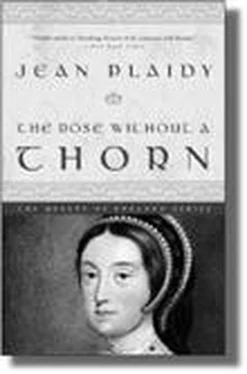Jean Plaidy - Mary, Queen of France - The Story of the Youngest Sister of Henry VIII
Здесь есть возможность читать онлайн «Jean Plaidy - Mary, Queen of France - The Story of the Youngest Sister of Henry VIII» весь текст электронной книги совершенно бесплатно (целиком полную версию без сокращений). В некоторых случаях можно слушать аудио, скачать через торрент в формате fb2 и присутствует краткое содержание. Жанр: Старинная литература, на русском языке. Описание произведения, (предисловие) а так же отзывы посетителей доступны на портале библиотеки ЛибКат.
- Название:Mary, Queen of France: The Story of the Youngest Sister of Henry VIII
- Автор:
- Жанр:
- Год:неизвестен
- ISBN:нет данных
- Рейтинг книги:4 / 5. Голосов: 1
-
Избранное:Добавить в избранное
- Отзывы:
-
Ваша оценка:
- 80
- 1
- 2
- 3
- 4
- 5
Mary, Queen of France: The Story of the Youngest Sister of Henry VIII: краткое содержание, описание и аннотация
Предлагаем к чтению аннотацию, описание, краткое содержание или предисловие (зависит от того, что написал сам автор книги «Mary, Queen of France: The Story of the Youngest Sister of Henry VIII»). Если вы не нашли необходимую информацию о книге — напишите в комментариях, мы постараемся отыскать её.
Mary, Queen of France: The Story of the Youngest Sister of Henry VIII — читать онлайн бесплатно полную книгу (весь текст) целиком
Ниже представлен текст книги, разбитый по страницам. Система сохранения места последней прочитанной страницы, позволяет с удобством читать онлайн бесплатно книгу «Mary, Queen of France: The Story of the Youngest Sister of Henry VIII», без необходимости каждый раз заново искать на чём Вы остановились. Поставьте закладку, и сможете в любой момент перейти на страницу, на которой закончили чтение.
Интервал:
Закладка:
“And you must have attended so many!”
She laughed. “Are you suggesting, sir, that this is my first ball?”
“My lady, you put thoughts into my head which were not there before.”
“You speak in riddles, sir.”
“Then let me offer one plain truth. I’ll swear there is not a lovelier lady at the ball than my partner.”
“And I’ll swear there’s not a more handsome gentleman than mine.”
He pressed her hand. “Now we are pledged to stay together that we may prove our words.”
She sighed. “Indeed, it is a duty.”
And so it was, for even when the ritual of the dance parted them temporarily they came back to each other.
She wanted to tell him that he had put up a very good disguise, that the change in his voice was miraculous; even so he could never hide himself from her. But to have done this would have spoiled the masque. He would want her to express surprise when they unmasked—and so she would. It was all part of the game.
What a wonderful brother she had, who could remain at her side through the ball, for he was a young man and, she had heard, fond of women. He would be a little disturbed on her account perhaps, for she was over-young to move disguised among the dancers; so he was determined to stay at her side to protect her. Dear Henry! Beloved brother.
She delighted in his skill in the dance. None leaped higher, none could turn and twirl so gracefully. When they unmasked she would tell him how proud she was of him, how dearly she loved him.
When the time came for unmasking she stood before him, her eyes alight with pleasure, and as she took off her mask he cried: “By my faith, it is the Princess Mary.”
With a deft movement he removed his mask. She stared, for the man who stood before her was not her brother.
“But,” she began, “I thought …”
“I please Your Highness less unmasked?” he asked.
“You were so like …”
“His Highness the Prince? He swears he gives me an inch … but I am not so sure.”
“You must be the two tallest men at Court, so it is no small wonder that I was misled. But you danced as he dances … your voice is even a little like his.”
“I crave Your Highness’s pardon, but may I say this: Charles Brandon is as eager to serve you as he is to serve your brother.”
She began to laugh suddenly for she guessed that this man had known all the time that she believed him to be her brother and had done his best to impersonate Henry. She could always enjoy a joke, even against herself.
He laughed with her while she studied him carefully—large, blond, handsome, vital. In truth a man; a little older than Henry, a little more experienced of the world.
“I never saw a man to remind me more of my brother,” she said. “My mistake was excusable.”
He bowed low. “A gracious compliment from a gracious lady,” he murmured.
Later Mary thought: That night was the most important of my life up to that time because it was then I first became aware of Charles Brandon.
The merrymaking over, the Sieur de Bergues with his followers went back to Flanders, and the Princess must return to the schoolroom. It was true she had a dignified establishment with her own suite of waiting women, and the fact that she was known as the Princess of Castile did add somewhat to her dignity, but there were still lessons to be learned; there were Latin and French exercises to be completed and she must sit over her embroidery.
The Court too had returned to normal. The King was disturbed by the cost of entertaining the Flemish embassy and was more parsimonious than ever. He was often irritable because he was in great bodily discomfort and, knowing he could not live long, he could not stop himself wondering what sort of king his brilliant and vital heir would make. Young Henry was vain, too fond of fine clothes and gaiety; these cost good money and he was not sure now whether, in his attempts to imbue the boy with a reverence for gold, he had not given him an urge to exchange it for worthless baubles. He was eager to arrange a match for his son; it was a matter of great relief that his daughters were satisfactorily placed—Margaret was Queen of Scotland, and that was a match which pleased him; while Mary as wife of the Prince of Spain would marry even more advantageously. No, it was not his daughters who worried him. It was his son. As for himself he did not despair of getting more children although he was aware that as he was no longer in his prime he should act promptly. His thoughts were now on the Emperor Maximilian’s daughter, Margaret of Savoy, who was aunt to Charles, Mary’s affianced. But each day he felt a little weaker and because he was shrewd he knew that his courtiers were looking more and more to the Prince of Wales than to the old King.
One of his greatest pleasures was to watch his daughter as she went about the Court. He would study her when she did not know that she was observed; she was a wild and lovely creature and he often wondered how he could have sired her. She had a look of her maternal grandfather, Edward IV—all his surviving children had that look. It was a grief to him that out of a family of seven only three were left. But what a joy to think that his two daughters would be queens, and his son a king. When he looked back to the days of his youth he could congratulate himself; and that reminded him that there was one to whom he should be forever grateful. She was at the Court now, for whenever possible they were together and during those months since the nuptial ceremony they were often in each other’s company. This was his mother, the Countess of Richmond and Derby.
It was she who supervised the education of young Mary and did much to impress on her the importance of her position.
One March day, a few months after the nuptial ceremony, Mary sat over her embroidery, cobbling it a little, for she was impatient with the needle and preferred to dance and play sweet music; and while she worked she was thinking of the new song she would play on her lute or clavichord and of which she would ask Henry’s opinion. It was such pleasure to be with Henry and his closest friend, Charles Brandon, with whom she now shared a secret joke because she had mistaken him for her brother. Neither of them told Henry that; they sensed he would not be pleased that someone could really be mistaken for him, and that his own sister should fall into such an error might be wounding.
Sitting staring into space Mary did not notice the approach of her grandmother until the Countess was beside her, taking the piece of embroidery from her hands.
She started guiltily, and was sorry that her embroidery was so poor since it displeased her grandmother.
“This is not good,” said the old lady.
“I fear not, my lady.”
“You should work harder, my child.”
“Yes, my lady.”
Mary looked at the stern face before her, thinking how sad it was to be old, and that her grandmother was really ancient, because the King seemed an old man and he was her son.
“It would please your father if you showed more diligence. What will your husband think of a bride who cobbles with her needle?”
“He is but a boy, my lady,” replied Mary, “and as he is the heir of Spain and Flanders, I doubt he will weep over a piece of embroidery.”
“You are too pert, child.”
“Nay, my lady, I did not mean to be, for it is my opinion that Charles would as lief I had a strong healthy body to bear him sons than nimble fingers to embroider. There will be women enough for that.”
“And it may well be to perform both services.”
Mary looked startled. “Nay, Grandmother, I should never stomach a faithless husband.”
“That which could not be prevented would have to be endured. My child, you have much to learn. You remind me of your brother.”
Читать дальшеИнтервал:
Закладка:
Похожие книги на «Mary, Queen of France: The Story of the Youngest Sister of Henry VIII»
Представляем Вашему вниманию похожие книги на «Mary, Queen of France: The Story of the Youngest Sister of Henry VIII» списком для выбора. Мы отобрали схожую по названию и смыслу литературу в надежде предоставить читателям больше вариантов отыскать новые, интересные, ещё непрочитанные произведения.
Обсуждение, отзывы о книге «Mary, Queen of France: The Story of the Youngest Sister of Henry VIII» и просто собственные мнения читателей. Оставьте ваши комментарии, напишите, что Вы думаете о произведении, его смысле или главных героях. Укажите что конкретно понравилось, а что нет, и почему Вы так считаете.












